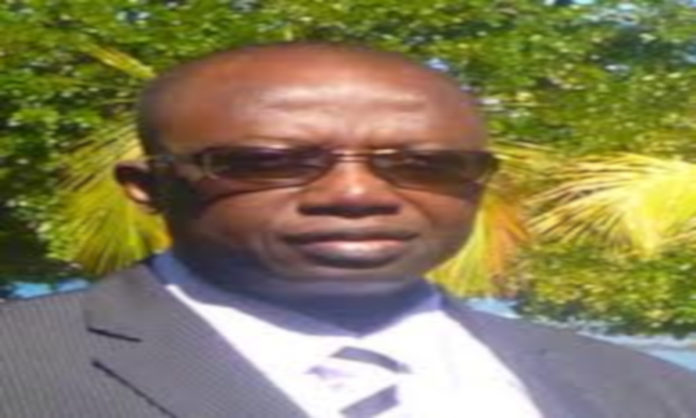By: Kebba AF Touray
Momodou Sarr, in his testimony before the Faraba Banta Commission on Tuesday, 14 August, outlined the steps and conditions to be met by an investor, before the issuing of a licence. These steps and conditions, which include seeking the wishes and concerns of the communities are included in his evidence which are stipulated below.
Mr Sarr, the former Executive Director of National Environment Agency (NEA) said there are certain projects that are obliged to conduct Environment Impact Assessment (EIA) and these include major roads, agriculture, bridges, factories, housing estates, industrial complexes and mining by a consultant.
He narrated that in the case of mining, the first step is to discuss with the Geology Department on the plans and site of the miner, upon which the department issues a screening form, which is filed with the developer after which it is sent to the Program Officer of the NEA, and based on the content of the form, they would determine that the particular developer or project needs EIA, especially for mining which is taken to the Executive Director. He added that a Working Group at the NEA meets and questions the developer on issues such as the mechanism the developer would use in levelling the ground, when too much is extracted, whether a land is communal or private and mitigation of environmental impact. He added that from the answers they [the working group] draw a Terms of Reference, which is sent to the Geology Department and then to the developer through a consultant.
He said the consultant is required to seek the wishes and concerns of the communities, which is answered in a report and the consultant is demanded to attach the CV of the consultant to the report for qualification purpose and the draft report is sent to the communities and NEA, which is required to announce over the radio to enable interested people to access and know the content of the report.
He added that consultation is a requirement included in the TOR, there are question that must be answered by consultation and it is not possible to sign an MOU without consulting the communities and by extension listing the contact details, names and pictures of those that have attended the meeting, prior to the issuing of licence. He said when all the requirements are met; the report is now approved by the Secretariat of EIA at the NEA and the Chairman of NEA. He said the Chairman also scrutinises the report and authorises the Officer in Charge [EIA] to write to the Geology and Developer indicating that the EIA report has been approved.
He said the approved report also contains conditions, among them the construction of access roads and the timely payment of royalties to the communities (which is collected by the Area Council at a negotiable price, with the communities, the Area Council and the NEA having their shares from the royalties, mitigating grievances among others).
He said that the project can now start, which is monitored by NEA, Geology and Area Council. He also said that Geology now writes to the Miner that he has been granted to mine in his area of interest after meeting the requirements, but does not have the right to grant any mining rights without the NEA and that the role of the NEA in the dialogue is to support the communities to ensure that they don’t lose their benefits of the mining, because they are pivotal in the matter, as well as monitoring the mining processes and averting any complications. He said approval is either denial or approval on conditions, but the working group can disapprove the proposal if it feels that the impacts are numerous and cannot be mitigated.
He clarified that everybody in the community should be consulted and should be reflected in a document entitled Focal Group Meeting Report. He said a situation whereby the NEA is not proactive can lead to reoccurrence of the Faraba Banta incident and the communities are at liberty to petition to the President and highlight that they were not consented. He also stated that the MOU cannot be signed by the Alkalo alone and the licenses can be issued on conditions and the area should be mapped out clearly prior the start of the activity.
He stressed that the country has adequate mining laws but only need reinforcement and that mining is illegal when it is commercialized and recommended the use of laterite mud dust as bricks in lieu of sand mining as they are durable and stronger than sand blocks.
He also clarified that the EIA can be reviewed to confirm whether the procedures are followed and if the process is not done properly, the license can be reviewed and cancelled if necessary.
















